Medical Practice Management is a massive job, encompassing HR, facilities management, inventory management, interfacing with legal, accounting, marketing, payroll management, billing, interfacing with payers, and business strategy.
Unfortunately, you don’t learn any of that in medical school. Part of the reason we’re seeing so much consolidation in healthcare is that it’s getting harder for small hospitals and medical practices to stay in the black.
For those of you who didn’t go to business school, that means stay profitable. Payment rates are down, and payment models like Accountable Care Organizations (ACOs) reward scale. And let’s not forget the technological expertise required to make good electronic medical records choices.
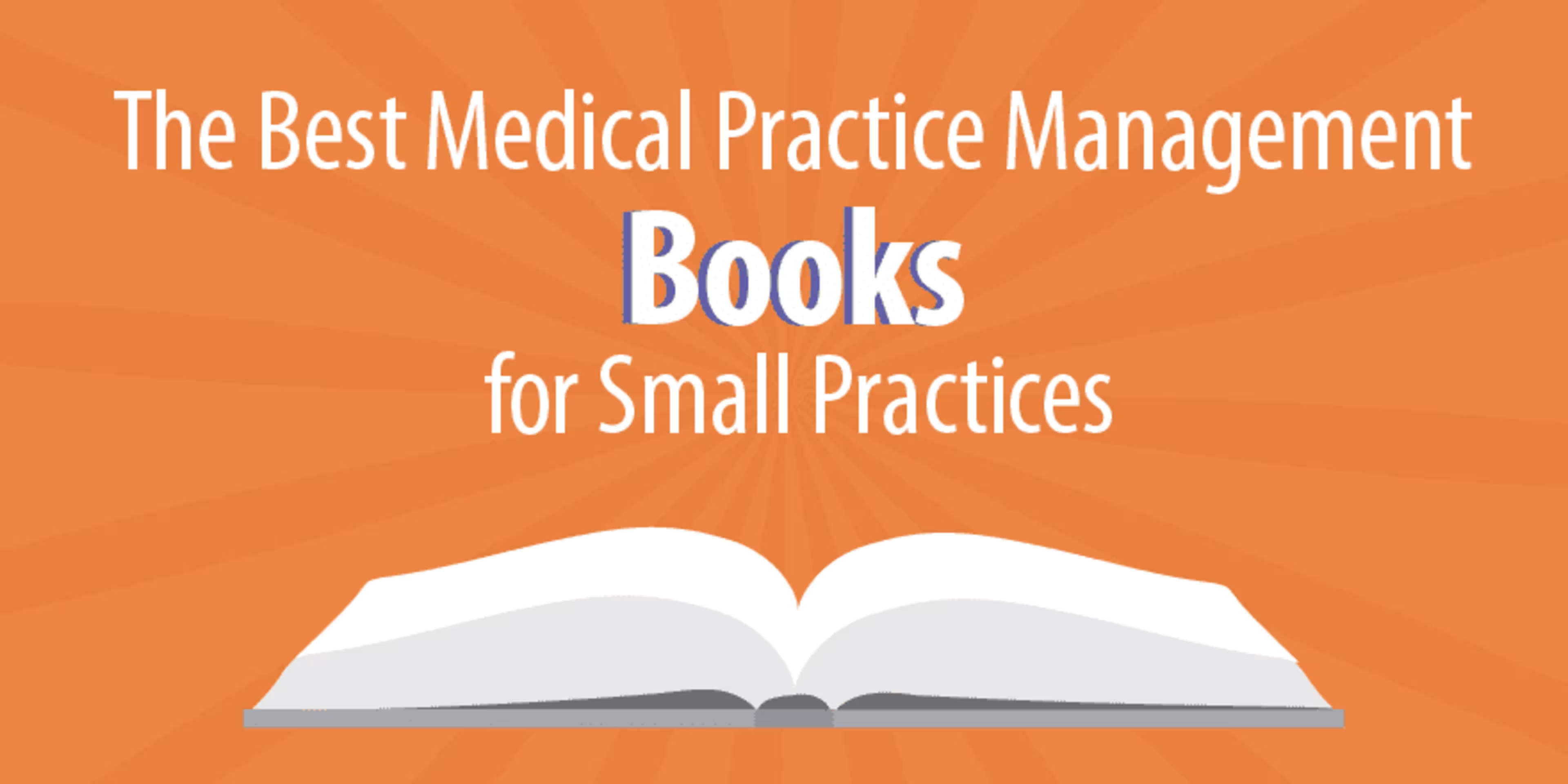
With that in mind, I’ve created a little mini-MBA for small practice physicians. These five books will help you make fewer mistakes, which is good because you can ill afford mistakes in today’s medical business climate.
My criteria for the books is that they teach doctors something valuable about managing people, facilities, or inventory. Help doctors avoid legal issues, or make accounting, marketing, payroll, billing, interfacing with payers, and business strategy easier. They must also have a four-star review or better on Amazon.
1. Secrets of the Best-Run Practices, Second Edition
By Judy Capko
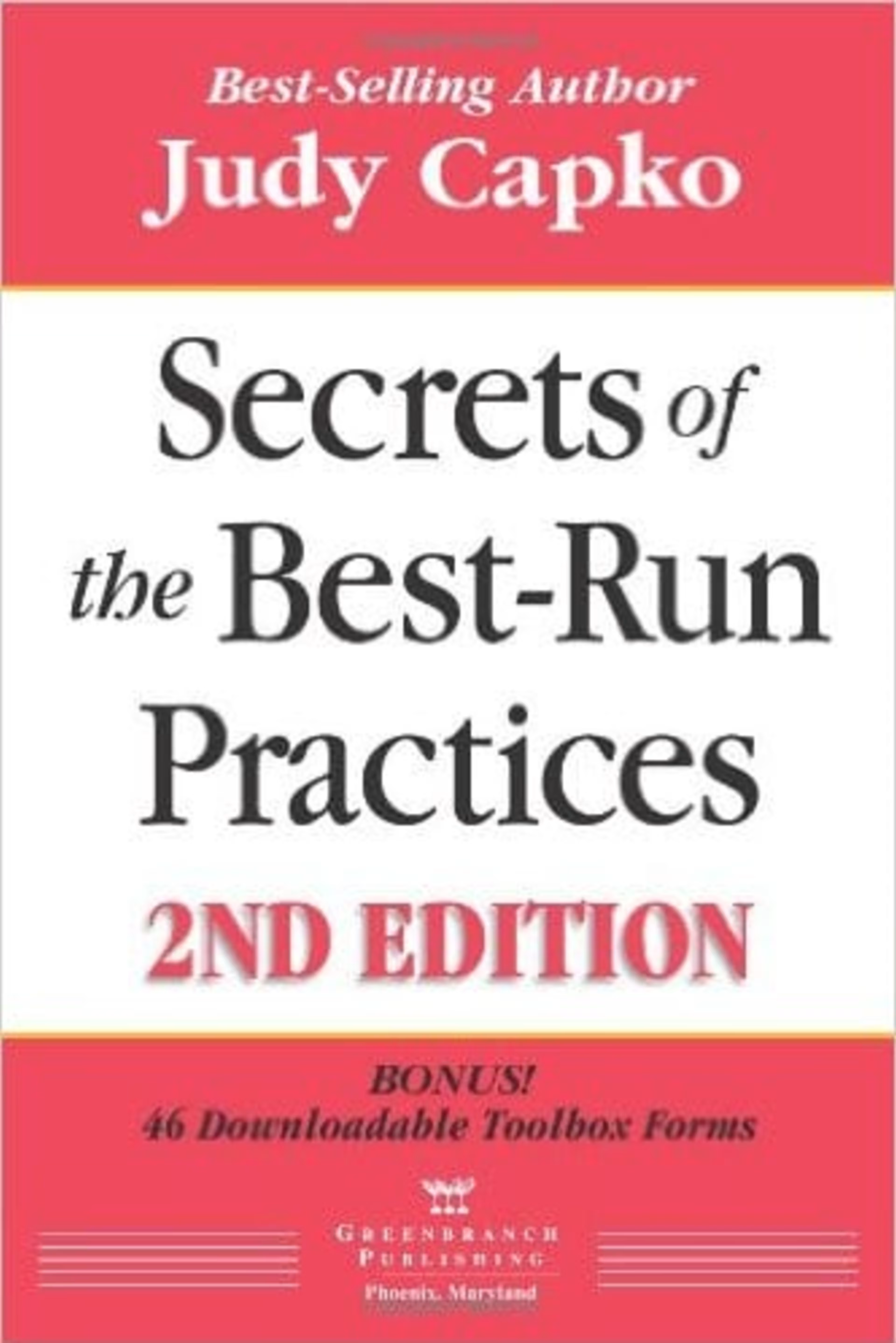
With multiple printings and a second edition, it’s safe to say doctors love Secrets of the Best-Run Practices. Reviewers enjoy author Judy Capko’s no-nonsense, plain-English writing style nearly as much as her practical, easy-to-follow advice.
Capko draws her real-life examples from the hundreds of medical practices she’s consulted for. “A copy of this book should be given to every physician graduating from medical school,” wrote Chris Riley, MBA and RCM and EMR Consultant Colorado Springs, Colorado.
Sometimes new editions aren’t all that different from the original books. Written in 2005, Secrets of the Best-Run Practices has stood the test of time. David L gave the book five stars in 2014. The practicing subspecialist said the book helped him to confirm that he was right about what he suspected was going wrong in his private group practice.
Capko also gave him the tools he needed to change it. Perhaps most important, reading Secrets gave David the confidence he needed to believe he could improve his practice despite the challenges every practice faces that are outside of our control.
The second edition includes four new chapters and 46 forms that you can customize for your office. The new chapters cover medical technology, medical economics, and new challenges for practices.
2. The Business Side of Medicine: What Medical Schools Don't Teach You
By Dr. Tom Harbin
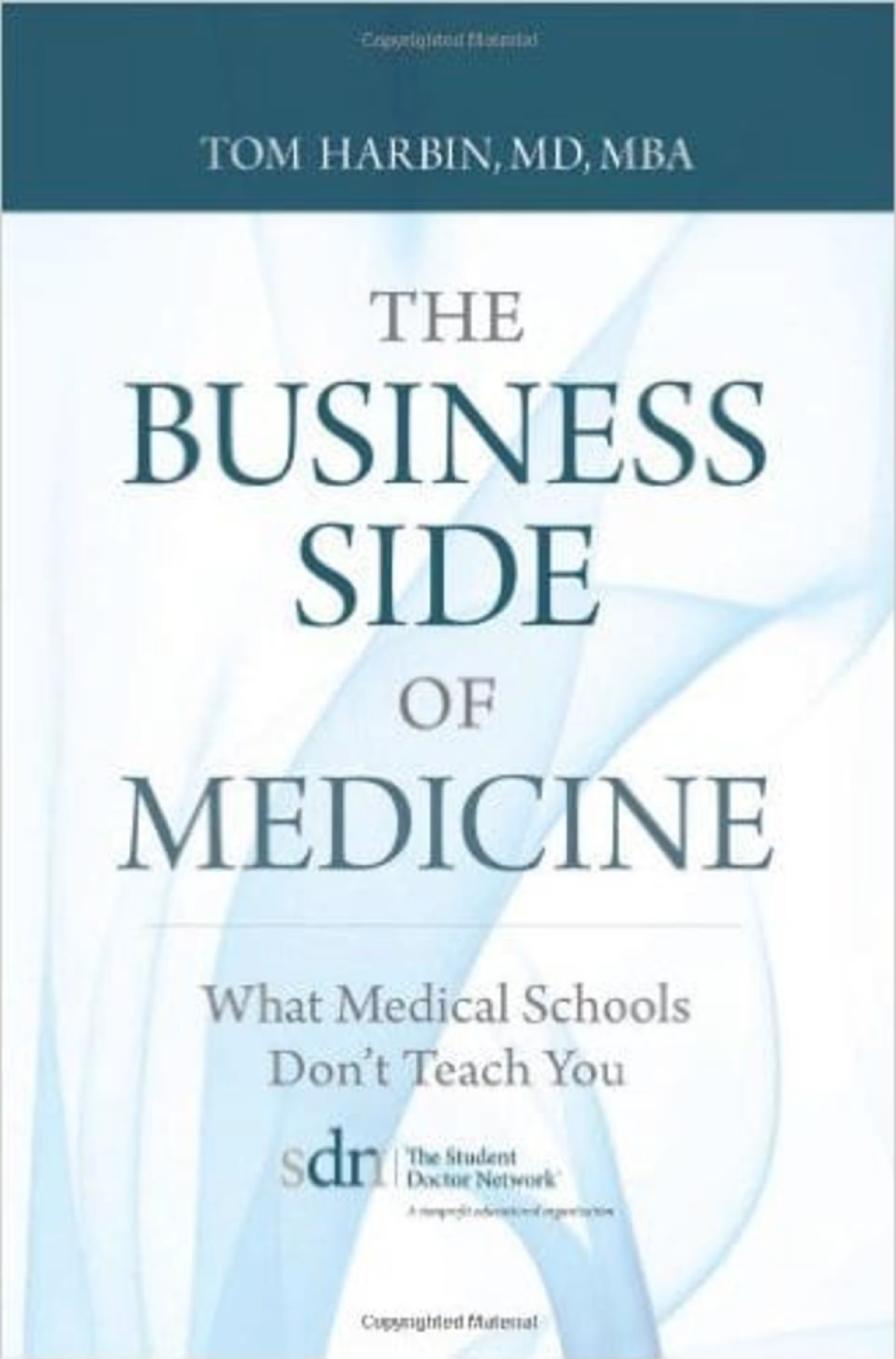
The words that keep coming up in the reviews are “must-read” and “required reading.” Like Secrets of the Best-Run Practices, the book focuses on practical advice for running a medical practice well. One big difference is that Dr. Tom Harbin is a Johns Hopkins trained ophthalmologist. He brings more than 30 years of experience, plus an MBA from Georgia State University, to The Business Side of Medicine: What Medical Schools Don't Teach You.
Reviewers also praise Dr. Harbin’s writing style. David wrote that “the style is like a sit-down conversation with Dr. Harbin who enjoys sharing several decades worth of experience. It is a very quick read, peppered with Dr. Harbin's advice and personal stories of his career.”
Slightly less practical than Secrets, The Business Side of Medicine focuses in on the "culture" of medicine, according to reviewer Craig J. Schaefer. This focus “forms a valid basis from which every professional can gain guidance for a happy and successful job and future.” It’s also a little more oriented toward doctors at the beginning of their career, and hones in on finding a job and planning for your future in medicine.
3. The White Coat Investor: A Doctor's Guide To Personal Finance And Investing
By Dr. James M Dahle
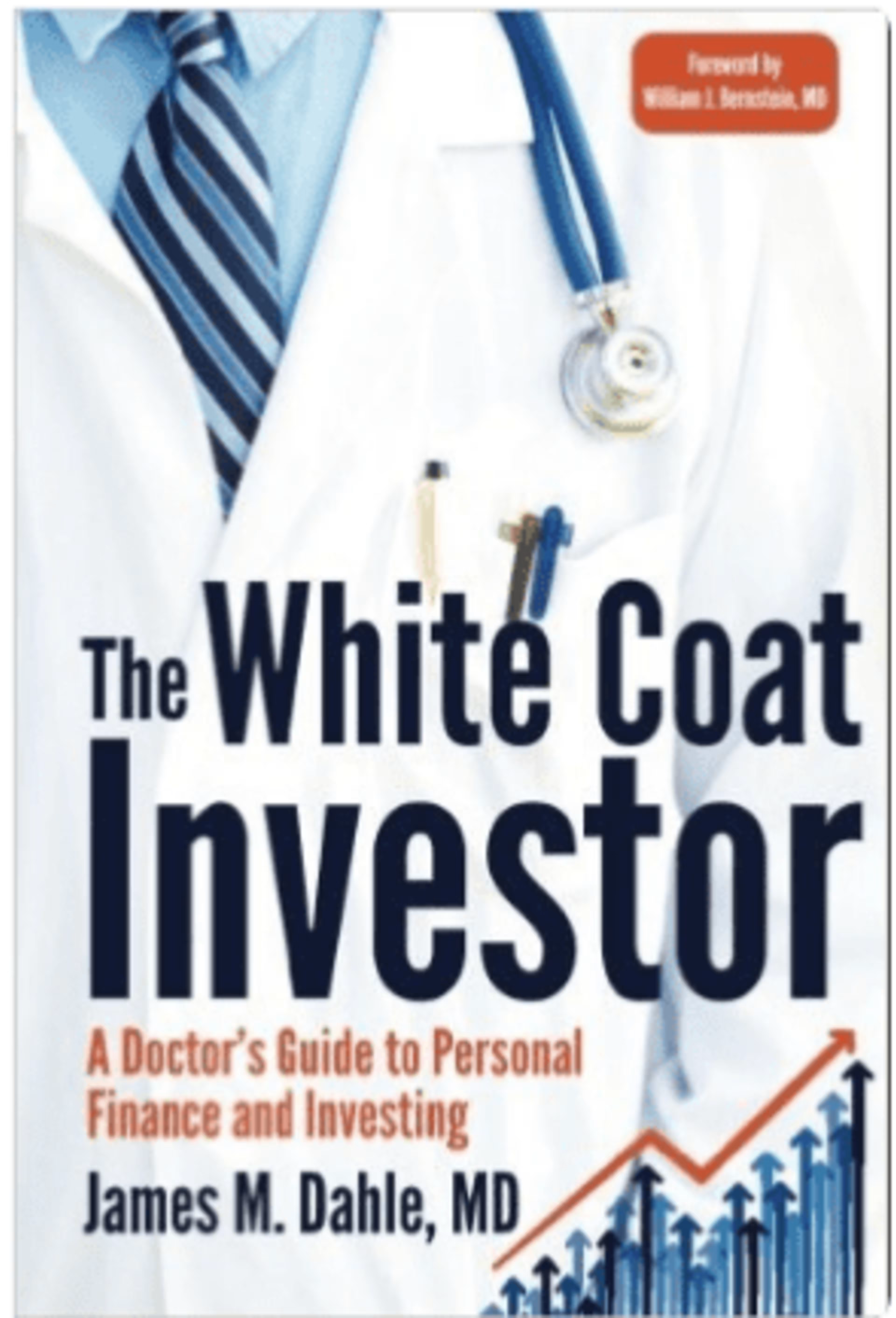
Money money money! Doctors have to deal with larger amounts of money than your average person. And yet you learn, if anything, less about managing it. The White Coat Investor: A Doctor's Guide To Personal Finance And Investing provides practical advice on business and personal finance. Learn how to pay off your student loans, buy the right insurance, pay your taxes, plan your estate, and protect your assets from a practicing emergency physician. And, of course, start putting your income to work for you by investing,
Allan S. Roth, MBA, CPA, CFP, Author of How a Second Grader Beats Wall Street said that much of the financial planning practice he gives doctors is aimed at correcting their mistakes. Roth wrote that if his clients had read The White Coat Investor earlier they could have avoided making these mistakes in the first place.
The White Coat Investor is not just a must-read, but it’s imperative that you read it soon. If you’re still in school, it can teach you how to graduate with minimal debt. If you’re a resident, learn how to pay off your loans quickly. If you’ve graduated, learn how much and what kinds of insurance to buy. Dahle even offers advice on buying and house and planning for retirement.
No matter what happens to your practice, you want to be sure you are on solid financial footing. This book can help you do just that.
4. How to Be a Rock Star Doctor: The Complete Guide to Taking Back Control of Your Life and Your Profession
By Dr. Rebekah Bernard
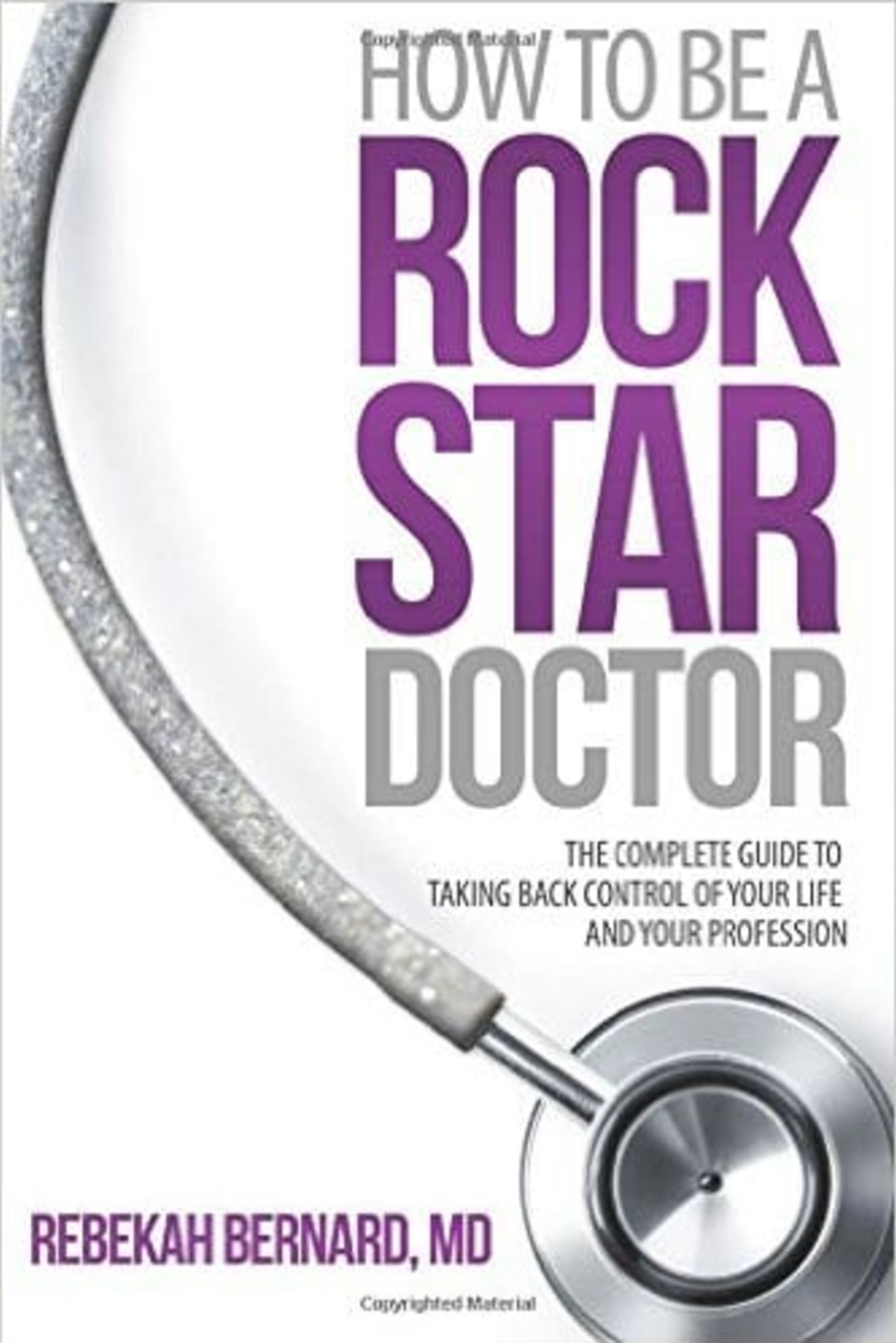
One of the newest books on the list, How to Be a Rock Star Doctor: The Complete Guide to Taking Back Control of Your Life and Your Profession is great because it offers tips on running your practice better, but keeps the true end goal in mind. You want to learn how to run your practice more efficiently, not just to have more fun and make more money, though obviously those things are great. The ultimate goal, the reason you went into medicine, is to make your patients healthier.
Rebekah Bernard's Rock Star rules are all about making sure that helping patients never comes at the expense of your own financial and emotional well-being. It’s all about exceptional performance without burning out, which means working smarter, not harder.
In her time as a family physician in private practice in Estero, Florida, Dr. Bernard has learned what patients want out of their doctors. Learning from her experience means you spend less time and energy trying to be something your patients won’t like or notice.
How to Be a Rock Star Doctor offers time management tools like the "Problem List" that helps you spend less time on nonsense during patient visits and more time on the conversations and activities that produce the outcomes you want. And, of course, since this was written in 2015 it’s got a section on how to waste less time using your EHR.
5. Remedy for Burnout: 7 Prescriptions Doctors Use to Find Meaning in Medicine
By Dr. Starla Fitch, Foreword by Bernie Siegel
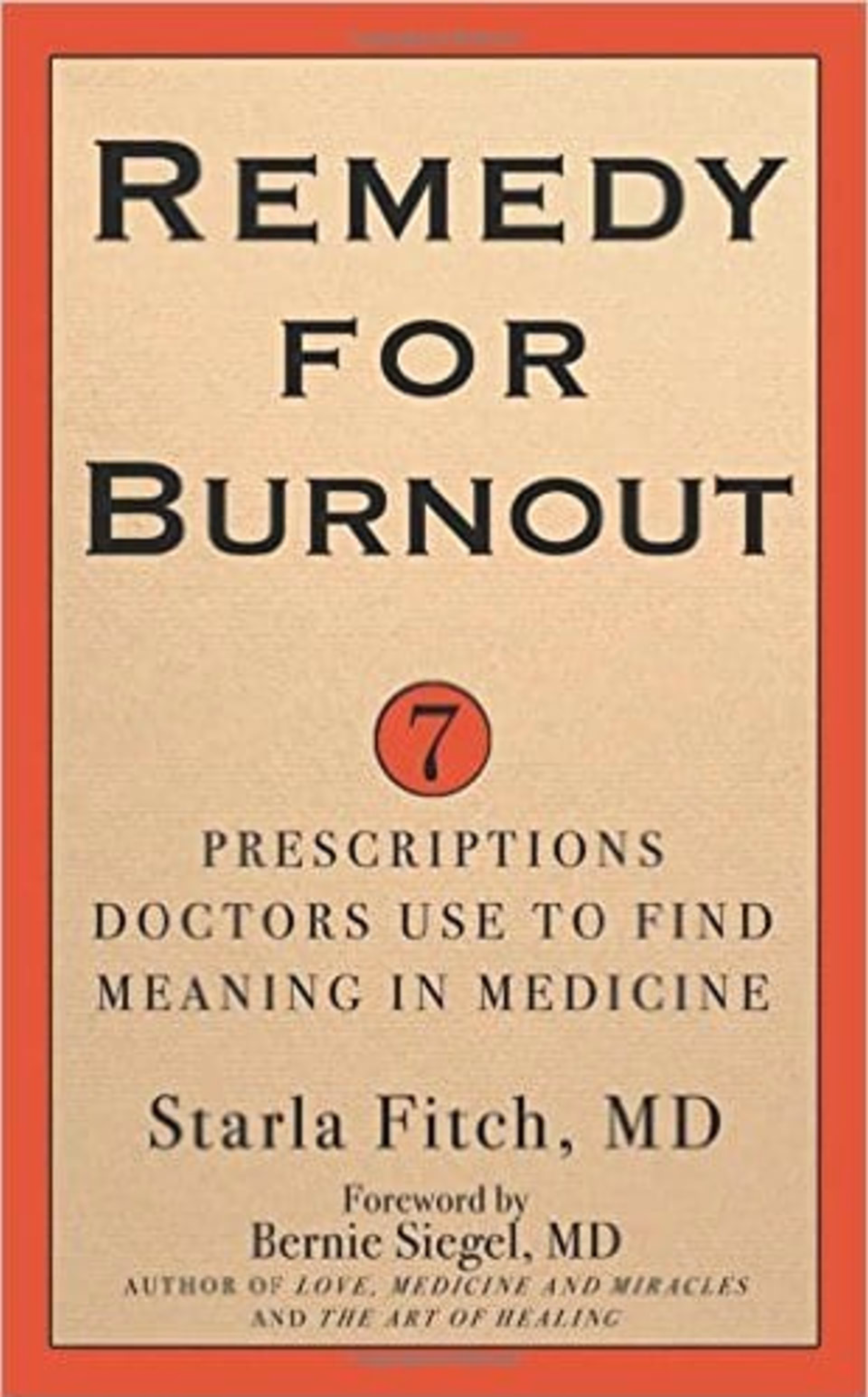
Not only is Starla Fitch a doctor, but she’s also narrowly avoided burning herself out. Remedy for Burnout: 7 Prescriptions Doctors Use to Find Meaning in Medicine is Dr. Fitch’s journey toward reconnecting with why she became a physician in the first place. And in so doing, finding new meaning in her work.
Fitch also tells the story of fellow physicians who’ve felt their own energy reserve tapping out. “Stories change people,” wrote Dr. Bernie Siegel. The New York Times best-selling author wrote the introduction to Starla's book. The stories and seven prescriptions “will change the way you feel about medicine.'' By reading their stories of reconnecting with why they went into the medical field you can begin to renew your own enthusiasm for your chosen profession.
Conclusion
You may not have learned a whole lot about Medical Practice Management in medical school. But it’s not too late. These books should help jump-start your learning.
To stay on top of the medical field, subscribe to the Capterra Medical Software Blog today.